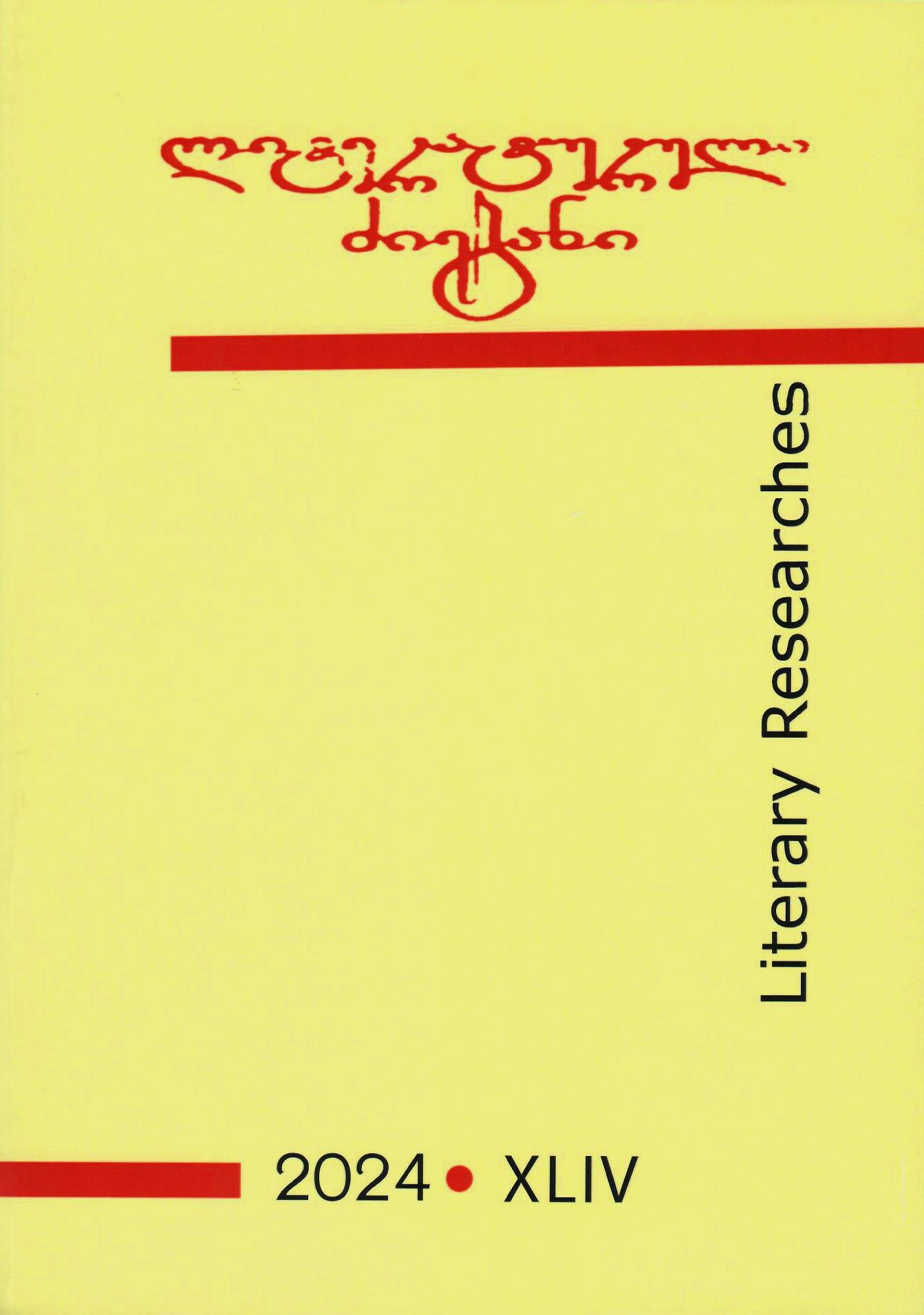From the History of the Systematization of the Georgian Literary Process: Archil Jorjadze and Georgian Literature of the 1950s and 1960s
Published 2024-11-27
Keywords
- Archil Jorjadze,
- XIX century,
- History of the systematization of the Georgian literary process
How to Cite
Abstract
Archil Jorjadze evaluates the process of development of fiction and public opinion in Georgia in the 19th century based on the magazines published in that period. He refers to the generation that came out before the sixties as "old", and those who came out in the sixties – as "new". Among them, he calls the writers transitional generation. According to Jorjadze, the political thinking of the Georgian "commoner's intelligentsia" of the 50s and 60s implied a mixture of national feeling, democratic aspiration and patriarchal-monarchical elements. According to Jorjadze, after the appearance of Ilia, Akaki and the "new generation" in writing, very important literary and social processes began. Clash of old and new, confrontation of fathers and sons. This controversy, as everyone noted, started on purely literary grounds, regarding the "unsuitability" of the language, and later turned into a deep, impassable chasm between the two worldviews. The new force brought a new language, thought, feeling and ideal to the Georgian socio-cultural space. To Archil Jorjadze's own question, does the sixties have a special "physiognomy" and what should be considered significant for this era, he himself answers that the sixties laid the foundation of the new Georgia, it should have started from that time and "slowly began to build a National Building according to European principles". As for the old generation, Jorjadze sees parasitism and slavery as a characteristic of the old, while he sees the calling of the new generation in "self-reliance" and struggle. According to Jorjadze's approach, this period as a whole, despite the reign of materialism, is clearly idealistic in nature. Jorjadze has well understood that the 1960s was a new era in our culture, it brought to Georgia the socio-political theories and formulas from the Europe in the nineteenth century. The "Europeanization" of Georgian thought began in the sixties. For Jorjadze, the main definition of the era is "liberalism-democracy". According to the critic's explanation, it was necessary not only to convey liberal-democratic principles in Georgian writing, but also to "bring the identity of the Georgian nation into awareness". What is the defining sign of the sixties for the critic, in his opinion, it is the service of the people, which for that era, became holy. However, Jorjadze does not shy away from a very harsh assessment of the 60s and notes that they had a "wrong" understanding of art theory. For the 60s, only that which served to improve the material side of the oppressed people was beneficial, they considered everything else as entertainment. The critic considers it a mistake of the sixties that they "removed" the features of pleasure, enjoyment and "self-indulgence" from their art, and the emotion of sweetness is as inseparable and important a feature of real art, whether it is realistic or symbolic, as "the feeling of satisfaction during moral action". Jorjadze believes that education and raising morals were the main demand and desire of the Georgian high society of that era.

